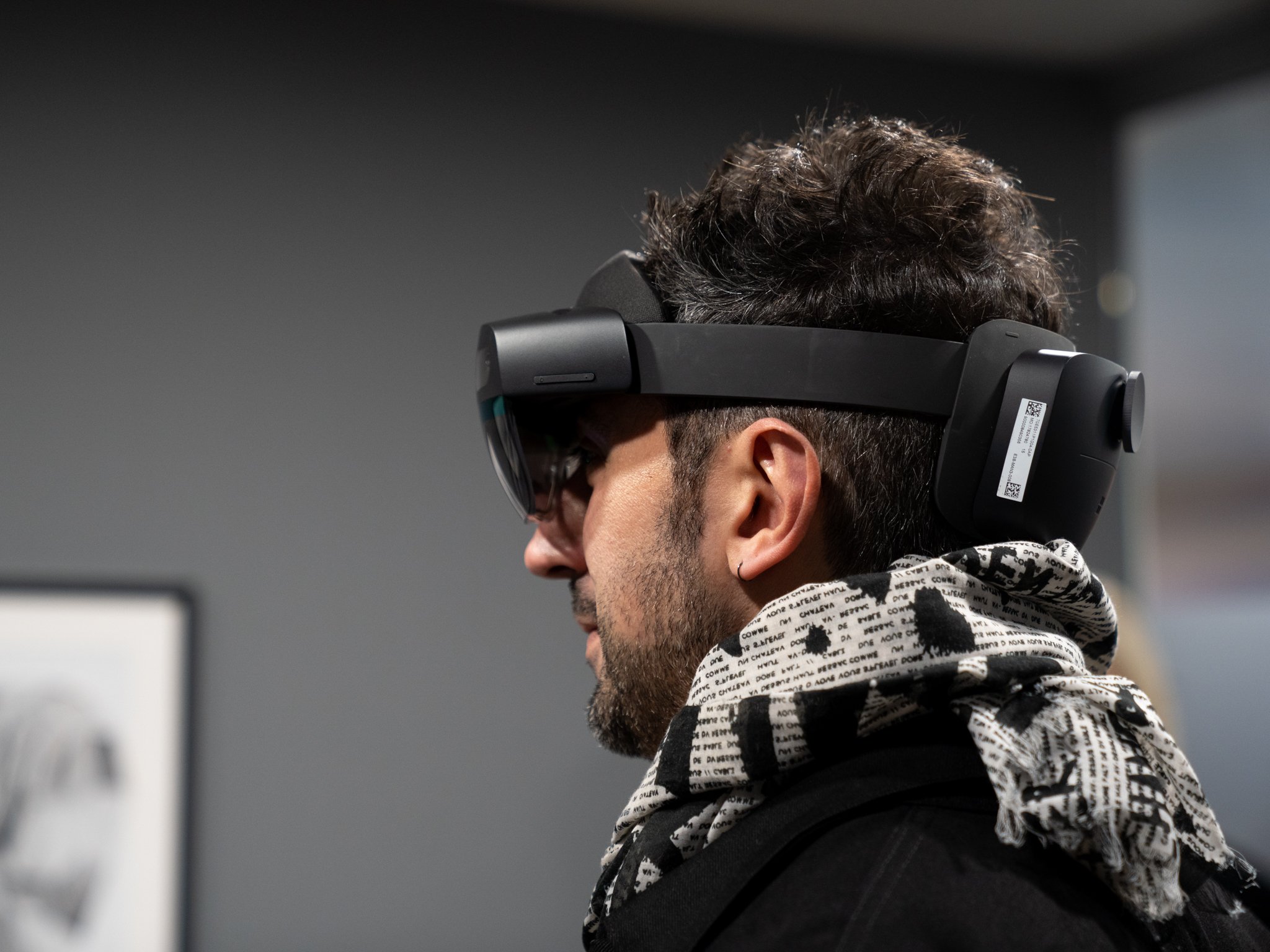Microsoft and Qualcomm working on custom chips to help create lightweight AR glasses
Microsoft and Qualcomm will help people dive into the metaverse as part of an expanded partnership.

All the latest news, reviews, and guides for Windows and Xbox diehards.
You are now subscribed
Your newsletter sign-up was successful
What you need to know
- Qualcomm will work with Microsoft to develop custom chips for augmented reality.
- The resulting chips would allow companies to make smaller and more efficient AR glasses.
- Microsoft's HoloLens 2 runs on the Snapdragon 850 CPU, which is made by Qualcomm.
Microsoft and Qualcomm announced an expanded partnership centering on augmented reality (AR) at CES 2022. The companies will work together to expand AR within the consumer and enterprise sectors. The partnership includes the development of custom AR chips that will allow companies to make lightweight glasses for augmented reality.
The hardware that comes forth from this partnership will integrate with software such as Microsoft Mesh and the Snapdragon Spaces XR Developer platform.
Qualcomm's press release on the partnership doesn't share any specifics about upcoming hardware. It's likely safe to say that the collaboration between Microsoft and Qualcomm is good news for those hoping to see consumer-aimed AR devices.
Microsoft's HoloLens 2, which runs on Qualcomm's Snapdragon 850, is an enterprise-focused machine. It's used by NASA and several large organizations in a variety of ways. There's even a HoloLens 2 Industrial Edition that's used in cleanrooms and hazardous environments.
Qualcomm's statement shows that AR will continue to be a focus of enterprise development, but that augmented reality could also have a place for general consumers.
"This collaboration reflects the next step in both companies' shared commitment to XR and the metaverse," said Qualcomm's vice president and general manager of XR Hugo Swart. "Qualcomm Technologies' core XR strategy has always been delivering the most cutting-edge technology, purpose-built XR chipsets and enabling the ecosystem with our software platforms and hardware reference designs. We are thrilled to work with Microsoft to help expand and scale the adoption of AR hardware and software across the entire industry."
"Our goal is to inspire and empower others to collectively work to develop the metaverse future – a future that is grounded in trust and innovation," added Microsoft's corporate vice president Mixed Reality Rubén Caballero. "With services like Microsoft Mesh, we are committed to delivering the safest and most comprehensive set of capabilities to power metaverses that blend the physical and digital worlds, ultimately delivering a shared sense of presence across devices. We look forward to working with Qualcomm Technologies to help the entire ecosystem unlock the promise of the metaverse."
All the latest news, reviews, and guides for Windows and Xbox diehards.
With metaverse being a buzzword going into 2022, we can likely expect more companies to get on board with augmented reality and related technologies. Microsoft already brought the metaverse to Microsoft Teams with its Mesh tech.

Sean Endicott is a news writer and apps editor for Windows Central with 11+ years of experience. A Nottingham Trent journalism graduate, Sean has covered the industry’s arc from the Lumia era to the launch of Windows 11 and generative AI. Having started at Thrifter, he uses his expertise in price tracking to help readers find genuine hardware value.
Beyond tech news, Sean is a UK sports media pioneer. In 2017, he became one of the first to stream via smartphone and is an expert in AP Capture systems. A tech-forward coach, he was named 2024 BAFA Youth Coach of the Year. He is focused on using technology—from AI to Clipchamp—to gain a practical edge.
